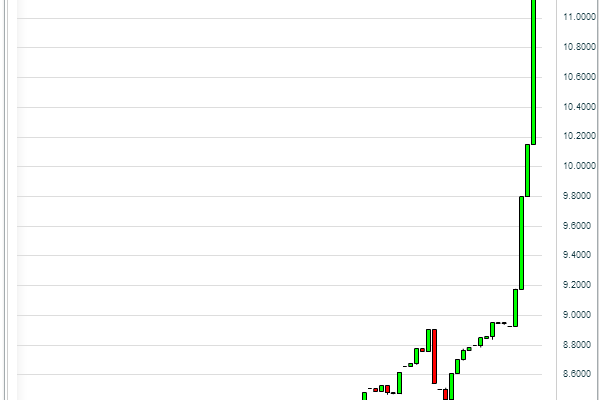Foreign Currency-Denominated Loans Strike Again
You can’t teach an old dog new tricks. At least that is the impression one gets when considering the credit exposure of the two large Austrian Banks still active in the Ukraine (a third one, Erste Bank, wisely shut up shop in Kiev in late 2012).
The two banks concerned are Raiffeisen International (RBI) and Bank Austria (BA), which together have exposure of 8 billion euro (approx. $10.9 bn.) in the Ukraine. This is only a small percentage of their total loan book, but still, it is quite a bit of money for banks based in Austria. Guess what: 70% of the credit extended to Ukrainian borrowers is denominated in foreign currencies. Right now there is no foreign currency against which the hryvnia is not crashing. Evidently, European banks have learned nothing from foreign currency lending debacles suffered elsewhere, from Hungary (where the government forcibly converted the loans into Forint and saddled the banks with huge losses), to the extremely popular Swiss franc loans they have extended just about everywhere they are doing business.
In the context of the once highly popular CHF loans, the customers the banks favored with these ‘excellent opportunities to save money’ were as a rule not sophisticated financial market wizards, and so were relying on the ‘expert advice’ dispensed along with the banks’ sales pitch. They were told that the Swiss franc would always remain stable against the euro. Since Swiss interest rates were considerably lower than euro interest rates at the time most of these loans were peddled, there was ‘free money’ waiting to be picked up. And then the crisis hit, and suddenly the Swiss Franc became worth a lot more. Instead of saving money, borrowers suddenly found themselves in dire straits.
Guess what is going to happen with foreign exchange denominated loans in the Ukraine.

A daily chart of the hryvnia – its crash continued with gusto on Thursday – click to enlarge.
As noted above, in terms of their total lending, the exposure of Austria’s banks is not very large (in RBI’s case an estimated 3.5% of its assets). Don’t forget though that for fractionally reserved banks the loss of even a small portion of their total exposure is meaningful.
With only about $1 bn. in government debt owed to foreign creditors falling due this year, a Ukrainian government default can probably be avoided for a while yet. However, the Ukraine is bleeding foreign exchange reserves fast. That is eventually going to have an effect on the economy, as imports can obviously not be paid for in hryvnia and the Ukraine has a perennial current account deficit. Press reports meanwhile indicate that businesses in Kiev largely remain closed post revolution, boarded up and guarded by the apparently still ubiquitous street fighters of the revolution.

